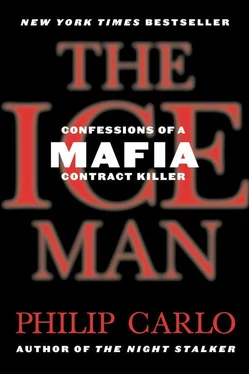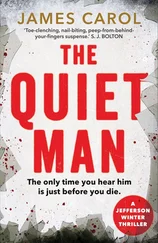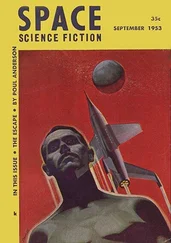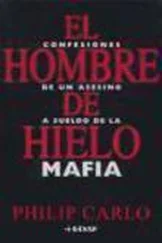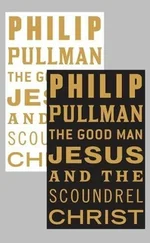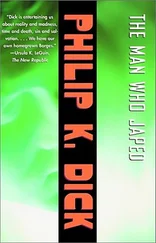After a few days at Al’s house, the Kuklinskis drove to Disney World and stayed in the Contemporary Hotel, the best one in the Disney complex. It was expensive, but you could get the monorail right there straight to the rides, where all the action was. The family would get up early so they could enjoy as much as possible before it became too hot. As much as Barbara loved Florida—going for long swims, watching the children play on the beach—she didn’t like the heat or the humidity. It made her tired and irritable, and when Barbara was irritable she and Richard inevitably clashed. Still, the Florida vacations were great fun.
They were, Merrick explained, some of the best times of my childhood… but you never knew when Dad might go off, so it was always—well there was always this kind of tension lurking.
For Richard Kuklinski, money mattered. With money you were a successful man; without it you were a failure, a needy no one who had to watch the good things in life go speeding by.
After Richard killed Paul Rothenberg, he was in good with DeMeo, but more important, he was in solid with Nino Gaggi and by extension the Gambino family. Roy invited Richard to dinner in an Italian restaurant called the Villa in Bensonhurst. It was on Twenty-sixth Avenue, in an old-fashioned home with large pillars out front. The restaurant served first-rate home-style Neapolitan cooking, Nino’s favorite. Everyone there knew who Nino was, and he was waited on as though he were Italian royalty; the best of everything, food and wine and service, was immediately his. Richard was impressed. It was hard not to be. Nino was obviously pleased that Richard had done away with Paul Rothenberg, and he promised that Richard would “earn with us.”
DeMeo acted as if he had created and molded Richard… a kind of secret Frankenstein’s monster killing machine who would faithfully carry out any contract, no questions asked, no piece of work too dangerous.
Because of DeMeo, Richard would become an integral part of the killing arm of the Gambino crime family. The fact that Richard was not Italian and did not hang out with wiseguys proved to be a big plus and would eventually get him involved in taking down the heads of two different crime families—a unique distinction.
After the sumptuous dinner with Gaggi and DeMeo at the Villa, Richard headed back to his family in Dumont. Dumont was as different from Bensonhurst as the sun is from the moon. In Dumont, Richard was able to wrap himself in a cloak of respectability: he was the good neighbor, the guy who drove his daughters’ friends all over, a faithful, stoic usher at Sunday Mass. Richard had no use for the church or its hypocritical teachings, but Barbara insisted that all her children attend private parochial schools, which were quite expensive, and that the family attend Sunday Mass together every week. In these things Barbara was the boss. Richard had nothing to say. He acceded to all of Barbara’s demands and directives when it came to the children—where they went to school, how they dressed, who their friends were, their table manners.
The following week Richard was beeped by DeMeo and went to meet him at the diner near the Tappan Zee Bridge.
“Hey, Rich,” DeMeo greeted him, and they warmly hugged and kissed, these two stone-cold killers, and began to walk around the parking lot.
“Got a special piece a work for you. This Cuban cocksucker down in Miami beat up and raped the fourteen-year-old daughter of an associate of ours. She couldn’t pick him out in a lineup because he wore a fuckin’ bandanna, but we know who he is; he works as a maintenance guy in the complex where they have a place. It’s called the Castaway right in Miami, on Collins Avenue. Richie, you go see him and make sure he fuckin’ suffers… really suffers! You understand?”
“My pleasure,” Richard said, and he meant it.
“This is from our associate,” Roy said, and slipped Richard an envelope with twenty thousand dollars in it. Mob guys make trainloads of money, and twenty thousand was a mere drop in the bucket, though it was enough for Richard to leave for Miami the following day. Now he did not stop for lunch or stay at a nice hotel on the way down. He drove straight through. When he bought gas and oil he paid with cash. Even if he had a credit card he would not use it, because he wanted no record of this trip. There was no photo of the mark, but DeMeo told him the kind of car he drove and that he parked it in the designated area for hotel employees; he even gave him the license-plate number.
The only people Richard hated more than bullies were rapists. As he drove he thought about how he’d feel if one of his girls were attacked that way… the rage and hatred he’d know. As cold and indifferent as Richard could be to human suffering, he had great empathy for a young woman who had been raped. This killing was a piece of work he’d enjoy. This was a piece of work he’d gladly have done for free.
As always, Richard was careful about not speeding, even though he was in a hurry—indeed looked forward to—doing the job. He had with him a .38 loaded with hollow-point rounds and a razor-sharp hunting knife with a curved blade and a hardwood handle. The handle had four notches on it—Richard liked to notch his knives when he used them to kill someone. He explained, I didn’t know how I picked up the habit, but I always liked to notch my knives. Like gunfighters used to. Over the years I had dozens of knives I used to kill. Some of them had ten to fifteen notches on them. Then I’d just get rid of them.
Richard planned to use a knife for this particular job. He very much enjoyed, he says, killing with a knife because it was so personal; you had to be close to the victim. He liked to see life leave the eyes of those he killed; especially a rapist. This would be… fun.
The Castaway was a sprawling three-story condo complex on Collins Avenue, near 163rd Street, on both the ocean side of Collins and the street side. Richard checked into a hotel near the place, had a nice lunch, and drove to the parking lot, looking for the mark’s car. It wasn’t there. Richard quickly found out there were two shifts, 8:00 A.M. to 4:00 P.M., then 4:00 P.M. to midnight. It was now the middle of the winter, 1974, and the parking lot was full. He would have to be careful, he knew, about being seen taking the mark.
He left, returned at 3:30 P.M., and waited. He didn’t have to wait long, for the mark soon pulled into the lot and parked, not a care in the world, singing to himself. He drove a beat-up red Chevy. The license plate matched. Richard smiled when he saw the guy, a tall, skinny Latin with a thick, greasy head of black hair combed straight back. Richard quickly saw how the job should be done and soon left.
Now it was only a matter of time.
At eleven thirty that night Richard was back in the parking lot of the Castaway. Just across the street was a hangout for young people called Nebas, and a huge crowd of kids were mingling. Richard parked his van as close to the mark’s car as possible, got out of it, walked to the red Chevy, gave it a flat, then calmly returned to the van. This was a tried and proven method Richard would use many times over. He already knew where he’d take the mark once he snatched him—a desolate stand of palms about a half an hour north of the hotel, right by the ocean.
Near midnight, the mark came bopping over to his car. He spotted the flat, cursed out loud, and opened his trunk. As he bent to pull the spare out, Richard stole up behind him and put the .38 in his lower back.
“My friend, I need you to come with me,” he said, his voice faraway and detached, as if it were coming from a machine, a telephone recording. Richard let him see the gun now, took his skinny arm and marched him to the van, put him inside, handcuffed him, put a sock in his mouth, and taped his mouth shut with heavy-duty gray duct tape. Richard calmly got behind the wheel and pulled out of the lot. The whole thing took less than two minutes. As Richard drove north on Collins, he talked to the mark.
Читать дальше
